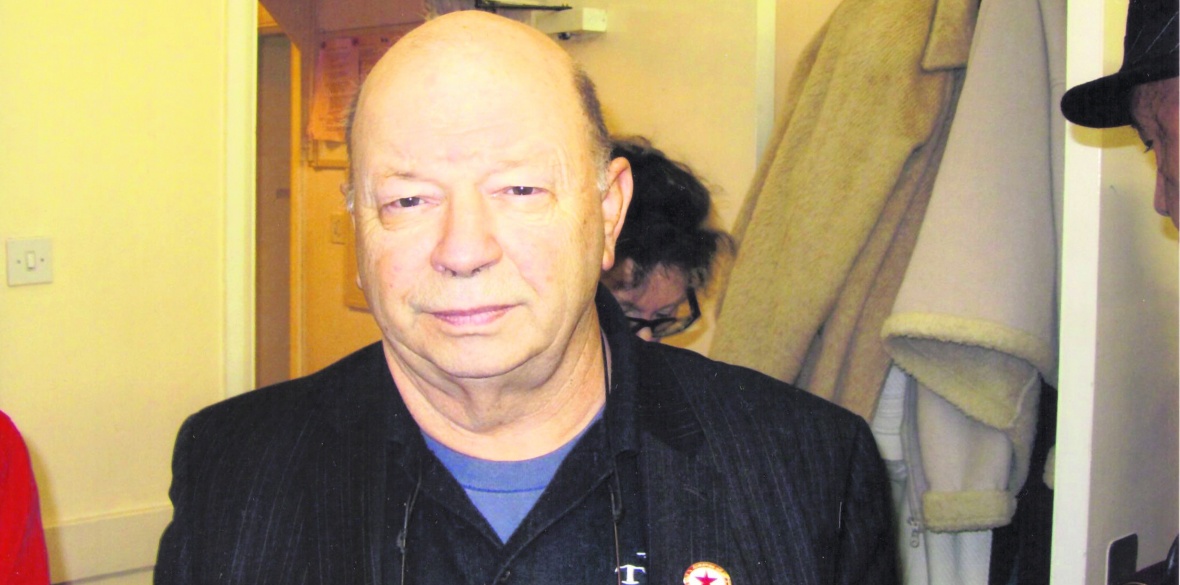This is the last article you can read this month
You can read more article this month
You can read more articles this month
Sorry your limit is up for this month
Reset on:
Please help support the Morning Star by subscribing here
MY friend and comrade Jim Brinklow led a varied and interesting life, seeing a fair part of the world before returning to Britain to continue his work as a trade unionist and communist.
Jim was born on May 25 1942, and died on January 11 2020.
He left school at 15 with no qualifications, first working as an apprentice jeweller. Wanderlust struck at age 16.
Jim became a sea cadet, later gaining certificates as an able seaman and a rigger, travelling around the world on merchant vessels.
In 1966 he jumped ship in New Zealand where he took up with Margaret, his landlady’s daughter. Jim started as a docker in Wellington, beginning his trade union life.
He and Margaret married in 1967, the year they joined the Socialist Unity Party of New Zealand, a breakaway communist party founded in 1966 to take the pro-Soviet side of the Sino-Soviet split.
In 1969, their party sent them both to the School of Marxism-Leninism in Moscow for a six-month study course. This trip cost Jim his waterside job.
Back in New Zealand, he did six months at the Ngauranga Freezing Works until his seafaring qualifications landed him a job as a rigger with the Wellington Harbour Board Workers, who had their own trade union. He later became full-time secretary of the union. His militant leadership contributed to a permanent change in New Zealand foreign policy.
During the 1970s, widespread protests against French testing of nuclear weapons in the Pacific included a challenge at the United Nations International Court of Justice.
France agreed to stop testing after 1974, and the New Zealand government abandoned its case, declaring that any nuclear-powered or –armed ship would be welcome at any New Zealand port.
USS Truxtun, a US nuclear-powered warship, took up this offer. The harbour workers refused to tie it up or unload it, forcing it to anchor in the harbour basin and ferry its goods and sailors ashore.
The workforce went on strike for two weeks, returning to work when the ship slunk away. To this day, no nuclear ship has been allowed to dock at any New Zealand port, and in 1987 New Zealand’s land, sea and air became nuclear-free zones.
After Jim’s father died, to support his mother, he and Margaret migrated to Britain in 1979. They joined the Communist Party here, and became active members of the British-Soviet Friendship Society.
Jim started in the engine plant at Fords in Dagenham. After a couple of years, that plant was shedding labour, transferring workers to the assembly plant.
The engine plant convener invited Jim to stay put and join his work gang for more money. Jim refused special treatment, saying: “I don’t jump queues, I have principles,” and followed his workmates to the assembly plant, where he was elected as a TGWU shop steward, safety rep, canteen rep and then deputy convener.
Fellow shop steward Ron Doel gave these anecdotes: “Jim played a huge role in stopping the use of apartheid South African fruit in the canteen and blocking imports of South African car parts, almost bringing about a strike in the process.”
“Management tried to sack a shop steward in the garage. Jim persuaded the garage workers to strike.”
Jim held many meetings in the plant on a wide range of issues, and Ron believed that the management were scared of Jim’s abilities to get union members to support disputes, making him a formidable adversary.
Another story from Ron: “After the 1988 Ford strike, Jim went with a union delegation to meet Belgian Ford workers in Genk, who were in dispute with the company over pay.
“A couple of weeks later, Jim was back there, as a member of the company’s joint works committee. Jim arranged to meet the Belgian workers again.
“Management got wind of this, and were so concerned about cross-Channel solidarity that within a couple of hours they sent the union delegation home.”
With a family history of early deaths from diabetes, Jim expected to meet the same fate, so at age 55 he retired early.
He took a course in sailing and radio control and even bought a boat. His eyesight started deteriorating, so he put the boat in his front garden, where it has remained a local landmark ever since.
Margaret and Jim joined Ron and his wife on a trip to Whitby, to see the Captain Cook Museum. It transpired that Jim knew more about Cook and his life at sea than the museum guides did, so they benefited from a good lesson that day.
Jim and Margaret became volunteer workers at the Morning Star office in east London for a decade or so. A decade ago he was elected treasurer of the Greater London East branch of the Communist Party of Britain, then served as branch secretary from February 2013 until his death.
He had extensive interests in history and politics, but his horizons were not limited to them. He became a philatelist. He loved wildlife, telling lively tales of wild turkeys in New Zealand.
Jim lived life to the full and he will be sorely missed by family, friends and comrades.
He leaves behind Margaret, his sister (also Margaret, with husband Trevor) his children Angela, Jane (with husband Gary) and James, and grandchildren Mia, Alfie, Lenny, Jimmy and Ollie.
At his funeral today, there will be speeches from Jim’s family, from fellow shop steward Ron Doel and from me for the Communist Party. As a fitting tribute, mourners will see banners from Jim’s trade union and party branches, and his coffin will be draped with a Communist Party flag.











